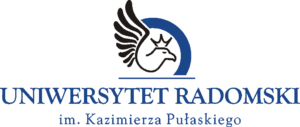Dear Students,
We invite you to participate in the 2nd International Scientific Online Colloquium on Translation and Interpreting Studies which will take place on January 24th, 2026.
This colloquium will be organized by:
Ø The “Village du Benin” International Centre of Languages Research and Studies, Lome (Republic of Togo);
Ø The “Alexandru Philippide” Institute of Romanian Philology, Romanian Academy, Iasi Branch);
Ø The Faculty of Arts and Science of Yozgat Bozok University (Republic of Turkey);
Ø The Faculty of Letters and Communication Sciences of “Stefan cel Mare” University of Suceava (Romania);
Ø The Institute of Philological and Intercultural Studies of the Free International University of Moldova;
Ø The Department of Translation, Interpreting Studies and Applied Linguistics of Moldova State University;
Ø The “Mircea Ionita” Laboratory of Comparative and Contrastive Linguistics and Translation Studies of “Alecu Russo” Balti State University (Republic of Moldova).
Argument
In a world that is increasingly interconnected, translation and interpreting remain indispensable and become steadily more complex and differentiated. The profile of the modern translator and interpreter must continuously evolve, specializing in multiple domains, developing cultural awareness and improving multitasking skills.
Academic research also needs to adapt and refine its approaches, methods and tools in order to duly address the challenges of the new translation practices and the most up-to-date technologies. The various discourses on translation phenomena are always likely to generate dynamic and intense discussions, shedding light on a wide range of theoretical and empirical frameworks.
Colloquium themes
1. Modern studies in fiction literature translation
2. Current approaches to terminology translation and interpreting
3. Contemporary research in mass-media translation and interpretation
4. The Role of Translation in Language and Literature Education
Language of plenary meeting and presentations: English
Languages of sections presentations: English, French, German, Spanish, Italian, Turkish, Ukrainian, Russian, Romanian
Fees
No fees for the registration, participation in the colloquium and publication of the materials are required.
Participants’ registration
You can register for this colloquium by sending one of the Registration Forms below to angela.cosciug@usarb.md till January 10th, 2026. Three types of participants can be registered for this colloquium: speakers, attendees, and panelists.
|
Registration Form for speakers First and second full names: Professional titles (for example, Associate Professor, PhD): Affiliation(s): E-mail and ORCID: Presentation theme: □ Modern studies in fiction literature translation □ Current approaches to terminology translation and interpreting □ Contemporary research in mass-media translation and interpretation □ The Role of Translation in Language and Literature Education Presentation title: Language of presentation: Presentation abstract in English (100 words): Presentation 10 keywords in English: |
|
Registration Form for attendees and panelists First and second names: Titles (for example, MA, PhD Student): Affiliation: E-mail: Colloquium themes (to choose): □ Modern studies in fiction literature translation □ Current approaches to terminology translation and interpreting □ Contemporary research in mass-media translation and interpretation □ The Role of Translation in Language and Literature Education |
Notes
1. On January 16th, 2026 all the persons who have registered for the colloquium must confirm their attendance. Those who, for any reason, are unable to actively participate will not be included in the program.
2. On January 17th, 2026 the Colloquium Program will be included on the Colloquium Home Page: https://usarb.md/laborator_mircea_ionita/colloquium2026.html
Guidelines for oral presentations
The time for each presentation, including discussion, is limited to 30 (20+10 or 25+5) minutes.
Proceedings publication and indexing
The full texts of all oral presentations will be published in the Colloquium Proceedings, which will be accessible online via the colloquium webpage. The Proceedings will be submitted for indexing in the Web of Science database. Therefore, speakers are encouraged to submit high-quality materials for publication, which will undergo a peer review process before being published.
Paper Formatting Guidelines
Ø Papers should be edited in Windows, format B5, using the Book Antigua font, size 11, single-spaced, and justified.
Ø The research paper should be 4000 words in length.
Ø The abstract in English should be 100 words.
Ø The list of keywords in English should consist of 10 items.
Ø Footnotes can be used if necessary, with a maximum of 5 footnotes per paper.
Ø The References list should contain no more than 15 items.
First Page Layout
Ø Title of the paper (Book Antigua, 11, bold, Center, printed). The title should be indicated in the language of the presentation and in English.
Ø Author’s full name (Book Antigua, 11, bold, Center)
Ø Author’s professional title (below the first and last names), Book Antigua, 11, Center
Ø Author’s institutional affiliation (Book Antigua, 11, Center)
Ø Author’s e-mail and ORCID
Ø Abstract and keywords in English (Book Antigua, 10, Italic).
Quotations should be displayed in the text with quotation marks. Examples in the text should be written 6 pt, Book Antigua, size 10.
Citations in the References List should follow APA Style 7th Edition and be in Roman script (Latin characters), in accordance with the Scripts Conversion International Standards (see Cyrillic Script – Roman Script Converter). For example:
Караулов, Ю. Н., Сорокин, Ю. А., Тарасов, Е. Ф., Уфимцева, Н. В., Черкасова, Г. А. (2011). Русский ассоциативный словарь как новый лингвистический источник и инструмент анализа языковой способности. В: Русский ассоциативный словарь. Книга 1. Прямой словарь: от стимула к реакции. Ассоциативный тезаурус современного русского языка. Часть I. Изд-во «Помовский и партнеры» / Karaulov, Ju. N., Ju. A. Sorokin, E. F., Tarasov, N. V., Ufimceva, G. A., Čerkasova (2011). Russkij associativnyj slovarʹ kak novyj lingvističeskij istočnik i instrument analiza jazykovoj sposobnosti. In: Russkij associativnyj slovarʹ. Kniga 1. Prjamoj slovarʹ: ot stimula k reakcii. Associativnyj tezaurus sovremennogo russkogo jazyka. Častʹ I. Izd-vo «Pomovskij i partnery».
Pages should not be numbered.
The full texts of the presentations must be sent for publication within three weeks after the colloquium to angela.cosciug@usarb.md.



